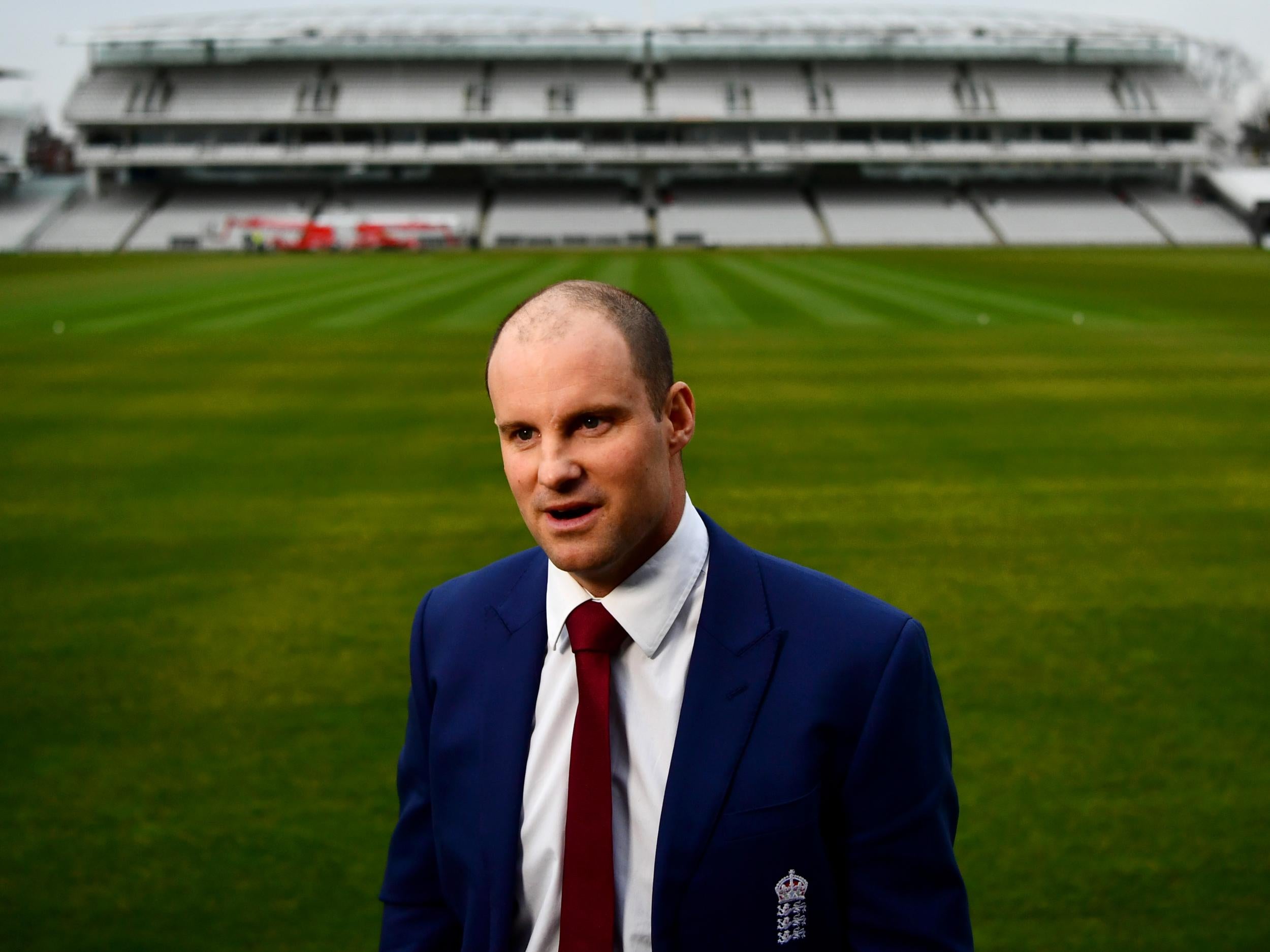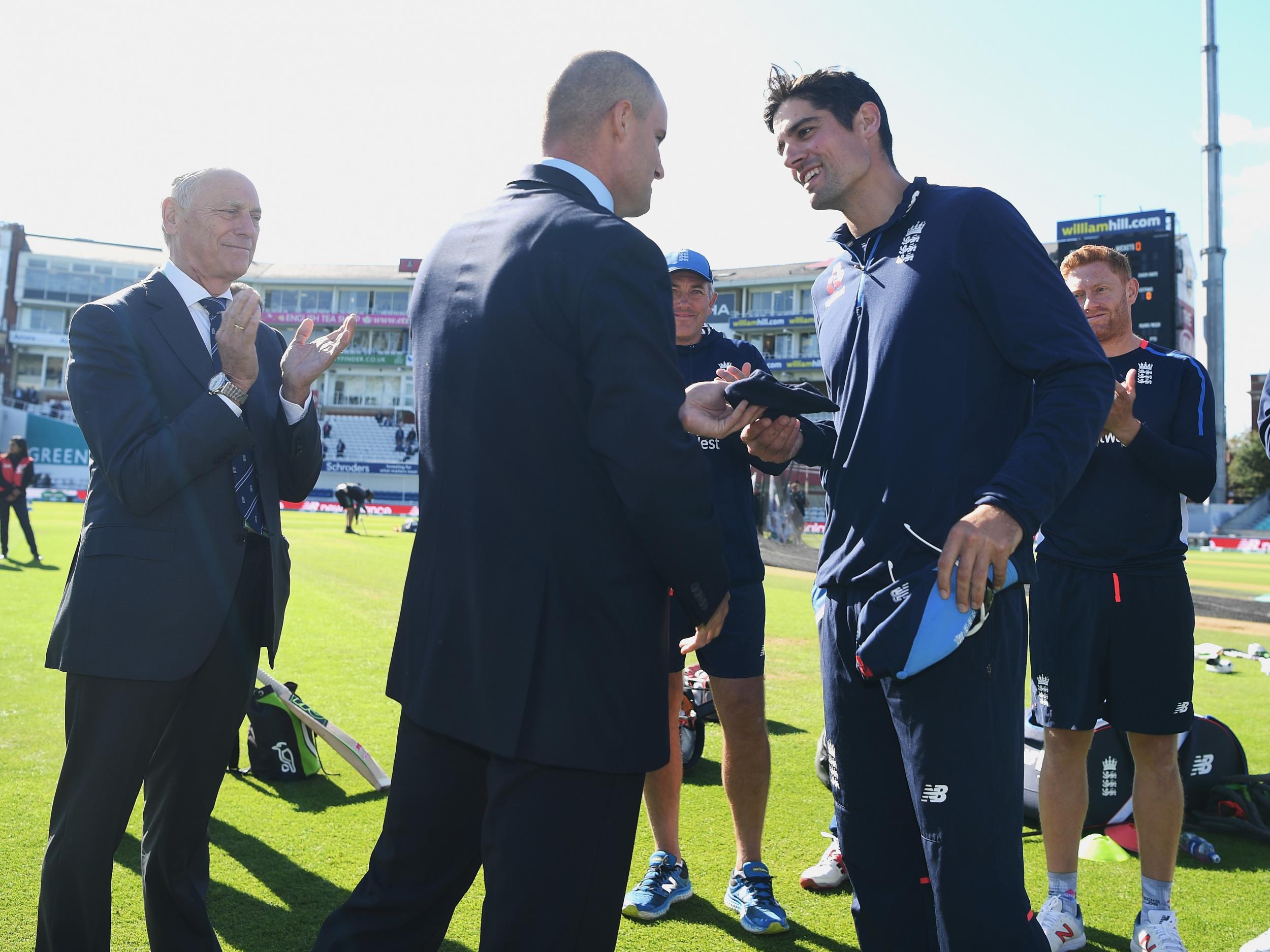Andrew Strauss made white-ball strides but his England Test record leaves a legacy incomplete
While the one-day team have gone from strength to strength, the Test side have curdled into a very gilded sort of stasis

Your support helps us to tell the story
From reproductive rights to climate change to Big Tech, The Independent is on the ground when the story is developing. Whether it's investigating the financials of Elon Musk's pro-Trump PAC or producing our latest documentary, 'The A Word', which shines a light on the American women fighting for reproductive rights, we know how important it is to parse out the facts from the messaging.
At such a critical moment in US history, we need reporters on the ground. Your donation allows us to keep sending journalists to speak to both sides of the story.
The Independent is trusted by Americans across the entire political spectrum. And unlike many other quality news outlets, we choose not to lock Americans out of our reporting and analysis with paywalls. We believe quality journalism should be available to everyone, paid for by those who can afford it.
Your support makes all the difference.Andrew Strauss leaves with his legacy as England’s director of cricket incomplete. By this time next year, however, we should have a better idea of whether his sweeping changes to the England team have been a necessary remedy or an expensive placebo.
Appointed three-and-a-half years ago with a brief to improve England’s shocking white-ball record, Strauss would dearly have loved to stay the course all the way to next summer’s World Cup, which England will host. Personal circumstances, in the form of his wife Ruth’s cancer diagnosis, have forced him to step down a year in advance. It is a decision that, in the words of ECB chief executive Tom Harrison, demands “huge respect”.
Strauss also deserves a good deal of respect for the way he approached the job. Not everything he has tried has worked – as we will discuss later – but one criticism you could never level at him was one of shirking the tough decision. Whether it was sacking coach Peter Moores on his arrival in 2015, definitively calling time on Kevin Pietersen’s England career or encouraging England’s best players to play in foreign Twenty20 leagues, Strauss often eschewed the crowd-pleasing call in favour of what he thought was right. There’s a certain integrity to that.

England’s white-ball form – No1 in the world, a World Twenty20 final in 2016 and a culture shift the likes of which English one-day cricket has not seen in half a century – currently stands as Strauss’s towering achievement. Strauss has been at the root of that: hiring Trevor Bayliss as coach on the basis of his strong white-ball record, introducing white-ball only contracts, encouraging greater specialisation and dissolving English cricket’s traditional sniffiness towards foreign franchise leagues. The result has been some of the most thrilling cricket ever played in an England shirt, even if the T20 side have regressed a little in the last couple of years. Victory in next summer’s World Cup would cement Strauss’s status as one of the pioneering figures of modern English cricket.
All this, however, has come at a cost. While the one-day team have gone from strength to strength, the Test side have curdled into a very gilded sort of stasis: fifth when Strauss took over, fourth now, which given the mixed standard of the international game and the resources lavished on this team is a pretty lamentable record. The 4-0 defeat in the Ashes was a painful reminder that England are no closer to winning away from home now than when Strauss took over.
Meanwhile, the appointment of Joe Root as captain in early 2017, while logical and probably the best option at the time, has created a sort of power vacuum at the top of English cricket that Strauss’s departure may only exacerbate. Consider this: we now have a head coach (Bayliss), an assistant head coach (Paul Farbrace), a chairman of selectors (Ed Smith), an outgoing director of cricket who will remain at the ECB in a “more flexible role” (Strauss), an incoming director of cricket (who knows?), an interim director of cricket (Andy Flower), and a chief executive (Harrison). Who is Root answerable to? Who, ultimately, is responsible for the performance of the England men’s Test side? All of them, alas, could be the answer. Too much accountability is really the same as not enough.
With Bayliss also stepping down at the end of next summer, a vaguely precarious instability now hovers over the England team. Strauss’s successor, to be named before the end of the year, will be pitched headlong into a period that could well define the future of English cricket for a generation. On another level, of course, it’s a challenge that pales into insignificance against that currently being faced by the Strauss family: Andrew and Ruth, Sam and Luca, the four people who through all this, should remain foremost in our thoughts.
Join our commenting forum
Join thought-provoking conversations, follow other Independent readers and see their replies
Comments